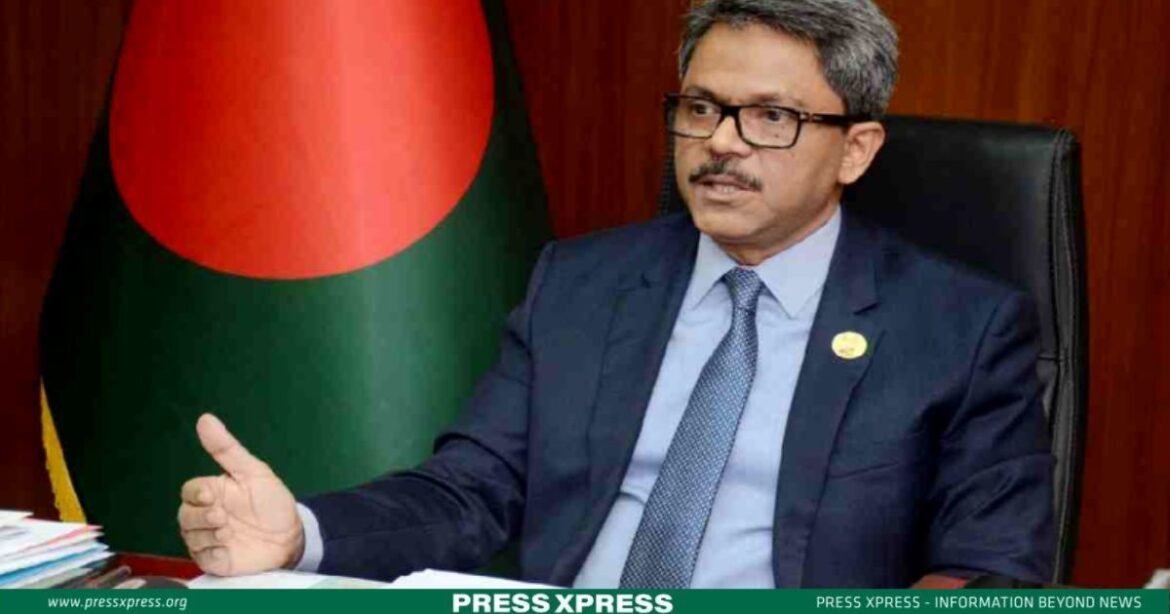The interference of diplomats, mostly from western countries, into the domestic politics of Bangladesh is increasing at an alarming rate.
Prior to every national election held after every five years, diplomats appear in a mediator role in Bangladesh as the main political parties are at loggerheads. But this time, before the upcoming 12th national election, the meddling of diplomats of various countries, including the US, into the domestic politics of Bangladesh has increased to such an extent that it is now tarnishing the country’s image at the global level.
You can also read: Bangladesh’s 12th National Parliament Election through the Eyes of SAARC Election Experts
On several occasions, the government has expressed its dissatisfaction over the role and activities of foreign diplomats ahead of the national polls.
Bangladesh will take its own decision: Shahriar Alam
On November 8 (Wednesday), State Minister for Foreign Affairs Md Shahriar Alam told the media, “We don’t like the recent activity of diplomats. But this culture has been in Bangladesh for a long time. But we want them to move away from this culture in the coming days.”
Indicating that necessary measures will be taken, if it is required, he firmly said, “Bangladesh will take its own decision.”
“A little patience is needed at this time. Diplomats are our guests. If they do not follow the Vienna Convention, our state also has its responsibility,” he said.
In reply to a query whether the Foreign Affairs Ministry will summon any ambassador, State Minister Shahriar Alam said that there would be no need to summon the ambassadors for their activities.
“I don’t think it will be necessary. It would be sad if it’s necessary. We know what to do when we run out of options,” he said as a warning.
The state minister, however, said that the government does not feel pressured by the activities of foreign diplomats.
India against US pressure on Bangladesh
“As India does not tolerate anyone’s interference in its own country, it is also impossible for India to allow any third party to put pressure on anyone. India has repeatedly tried to convey this to the United States. This time also India has tried to convey this message to the United States; whether the US will understand or not is up to them,” writes Professor at OP Jindal Global University Sreeradha Datta, in an article published in the national daily Prothom Alo on November 11.
She writes, “India’s closest neighbour is Bangladesh. This closeness and interdependence between the two neighbouring countries has increased a lot during the last 15 years. No country wants to lose friendship or interrupt the continuity of the relationship. Naturally, India does not want that either. India wants democracy to continue in Bangladesh in order to maintain regional stability.”
“India has always supported democracy and wanted elections in democratic countries to be fair and free. India wants the elections in Bangladesh to be fair, free and peaceful. There are signs of such elections in Bangladesh. So, doubting this is pointless,” Sreeradha says in the article, adding, “India can never in principle support or approve that any other country will put constant pressure on Bangladesh. India has already informed that to the United States.”
China against outside interference in election
China wants to see the election according to the constitution and laws of Bangladesh. China does not want any outside interference in the upcoming national elections of Bangladesh. China itself does not interfere in the internal affairs of other countries, said Chinese Ambassador to Dhaka Yao Wen.
He came up with the observations while talking to journalists after attending a seminar in Dhaka on November 9.
The Chinese ambassador said, “The election is an internal matter of Bangladesh. Bangladeshi people will decide about the election of Bangladesh. China hopes that all partners will maintain political and social stability in Bangladesh. Bangladesh knows what kind of election is needed.”
In response to a query about a dialogue between the political parties, Yao Wen said, “Only the political parties can say about it. China wants stability in Bangladeshi society.”
In the throes of the upcoming 12th national election, Bangladesh finds itself at the crossroads of international influence. The unprecedented interference of Western diplomats raises concerns about the nation’s autonomy and global image. State Minister Shahriar Alam’s resolute stance echoes the sentiment that Bangladesh will not bow to external pressures. As neighboring powers like India and China weigh in on the matter, the nation stands firm, navigating the delicate balance between international relationships and safeguarding its democratic process. The world watches as Bangladesh asserts its right to decide its political destiny, emphasizing the need for respectful diplomacy in a crucial electoral season.


